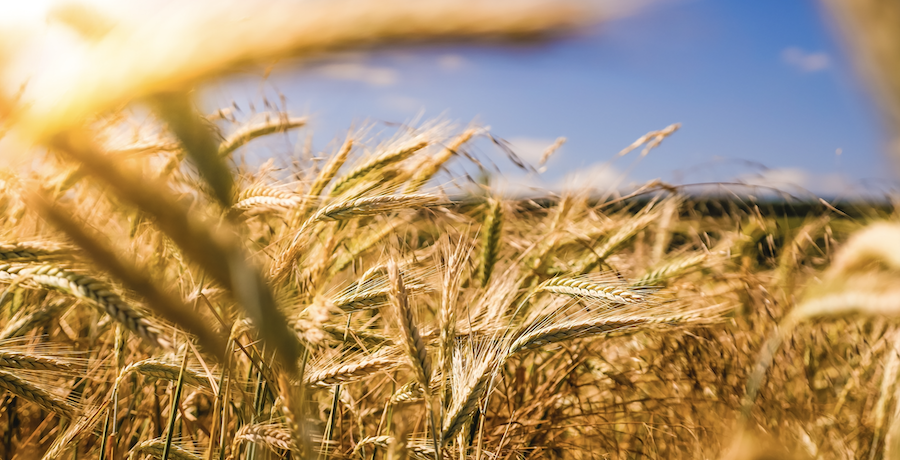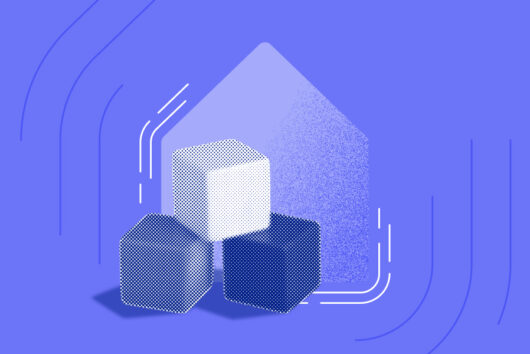Blockchain in supply chain: Overhyped or game changing?

Last week’s CES 2020 in Las Vegas saw startups and innovators present a host of new technologies, including several projects using crypto and blockchain.
Among these were a number built to cater for better supply chain management–an application of blockchain technology that has been long discussed, but which only now seems to be bearing fruit. But wi
The IBM Food Trust Project
Launched in August 2017, the IBM Food Trust Project enables farmers, grocers, chefs and everyone else involved in the food supply chain to track their produce from seed to plate. The project has already done valuable work. Last October, IBM partnered with Raw Seafoods to bring blockchain-based traceability to the seafood supply chain, following an Oceana investigation in which 21% seafood tested was found to be mislabeled.
At CES, IBM demonstrated its potential by teaming up with Masterchef judge and celebrity Chef, Aarón Sánchez. Together, they created a vision of what the end product of a blockchain-based food chain could look like, cooking a dish using blockchain-tracked produce that included kale and scallops.
For Sánchez, this added a human element that is otherwise missing in cooking. “For me, I felt like there were a lot of nameless ingredients, in the sense that I didn’t have the connection to the farmer necessarily,” he explained. “Blockchain allows you to have a direct connection and a conversation through technology.”
But while a more personal connection in cooking is all well and good, some argue that the potential impact of such initiatives could be far more profound – particularly in developing countries. And the impact of blockchain in the supply chain is not just being felt in food. Medicine, clothing, and a raft of other vital sectors could also be in for a boost.
Potential impact across the world
Blockchain is designed for trust. It is perfect for Bitcoin, for example, because it provides a guarantee to both parties involved in a transaction that it has taken place.
This transparency and the trust it provides is also desirable in many other fields. In supply chain management, you need to trust the provenance of all the components in your product so you can guarantee its quality. This is important in food because, as IBM’s partnership with Raw Seafoods shows, it is often mislabeled. This has a potentially lethal impact for anyone with allergies.
A guarantee of the authenticity is also important in that it can show food has been sourced sustainably and from farmers who have been paid a fair market price.
In one case, AB InBev, the world’s largest brewer, discovered that its farmers in Africa were not getting the right prices. This was primarily due to corruption and an excess of middlemen.
To tackle the problem, AB InBev partnered with technology company BanQu. They built a simple mobile app, using blockchain to offer farmers a secure, immutable platform to record their transactions.
Katie Hoard, Global Director of Agricultural Innovation at AB InBev, explained: “This is a huge step forward. It’s being able to understand where the resources are going and making sure they are getting to the people you intend to impact.”
AB InBev are not alone. Starbucks have also joined forces with Microsoft to tackle the notorious ethical issues around coffee bean production. They developed a blockchain-based supply chain tracking system and mobile app, allowing customers to track the supply chain journey of the beans they buy and the coffee they drink.
And it’s not just corporations. Blockchain’s potential has also been recognised by humanitarian organisations such as the UN. The UN International Telecommunications Union and Food and Agriculture Organisation have partnered to track pig supply chains in Papua New Guinea, for one. The UN Development Programme is also using blockchain to track the cocoa supply chain in Ecuador.
Blockchain to end counterfeit drugs?
The need for transparency is arguably even more important in the pharmaceutical supply chain.
The World Health Organization (WHO) found that Africa alone accounts for 42% of globally detected cases of substandard and fake medical products. They also estimate that around 10% of medicines across the world are counterfeit and that this rate is as high as 30% in some areas of Asia, Latin America, and Africa. Fake drugs cause 64,000 to 158,000 malaria-related deaths every year in sub-Saharan Africa, according to research by the London School of Hygiene and Tropical Medicine.
FarmaTrust, for one, offers a way to trace data about medicine moving through the supply chain on blockchain. Raja Sharif, the chief executive of the UK-based data company, explains: “The issue with fake medicines is that they usually enter the middle of the supply chain, not at the top at the point of manufacturing, and the useful thing about blockchain is that it creates an incorruptible record; once you’ve made a record, you can’t make it again or alter it.”
Oksana Pyzik, a senior lecturer at UCL’s school of pharmacy and Fight the Fakes campaigner, agrees, telling The Guardian that blockchain looks as though it can become an effective tool. “I think based on the fact the FDA is already piloting blockchain in the pharma supply chain in the US suggests it’s a way forward to get the highest quality track and trace, and the cost is not as prohibitive as it was once,” says Pyzik.
Ultimately, blockchain will never solve every problem supply chain professionals face, despite what some may tell you. There is always going to be potential for corruption at physical stages of the supply chain that blockchain cannot help fix. Many of the projects mentioned here are also still in the very early stages and as yet unproven. They require participation and the ability to scale. The progress that companies such as IBM are demonstrating at CES, though, suggest that it is not long before we really find out whether their potential can be realised.
Keep reading…
What crypto Twitter had to say in 2019
Top crypto trends to watch out for in 2020
Bitcoin futures are growing in popularity, but what are they?
 Discover
Discover Help Centre
Help Centre Status
Status Company
Company Careers
Careers Press
Press


